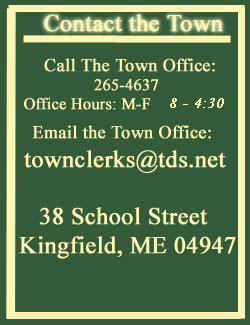PROPERTY ASSESSING AND PROPERTY EXEMPTIONS
These rules all direct the Assessor to approximate the market value of taxable property within the town, using a similar system for each property class. The market tends to oscillate over time, but as long as properties are valued proportionately, then the system is considered fair. Annually the state’s Property Tax Division audits the work of the Assessor to ensure compliance with legal practices.
The Assessor’s office is located in the Town Hall. The office maintains a public counter at which assessment information is available, including tax maps, valuation listings according to name and according to map/lot, sales lists, property cards, and real estate transfer tax forms. These may be examined during regular office hours and copies are available for a reasonable fee.
Exemptions
Homestead Exemption
Under this law, homeowners are now eligible for up to a $10,000 reduction in their permanent residence’s property valuation (the state reduced this from $13,000 in 2010). If you have owned a home in Maine for 12 months prior to April first, you may apply for this program. Forms are available at the Tax Assessor’s office.
Veteran’s Exemption
A property owner may be eligible for a reduction in the valuation of their property if they: Own a residence in Kingfield on April 1 of the tax year in question; Are a veteran who is not dishonorably discharged; Served during a recognized war period in the U.S. Armed Forces; Are over 62 or are an unremarried widow/widower of a qualifying veteran. If the veteran is under 62 but is 100% disabled due to a service-connected disability, he/she might likewise qualify. In any case the veteran must fill out a form and provide proof of service and discharge, such as a copy of their DD214 form. For veterans who served during World War II or later, the exemption is $6000, beginning April 1, 2008. For veterans serving prior, the exemption is $7000. Paraplegic veterans may receive an exemption of $47500 for a specially adapted housing unit. Applications for these exemptions are available in the Tax Assessor’s Office.
Blind Exemption
The residential real estate of residents who are legally blind as determined by the Department of Education Division for the Blind and Visually Impaired may be exempt up to the just value of $4,000. Applications for this exemption are available in the Assessor’s Office .
TREE GROWTH
As a matter of public policy, the State of Maine has set up a Tree Growth category of property which values land according to rates established by the State rather than market value. A property owner who wishes to maintain land for the planting, culture, and continuous harvesting of trees may apply for a Tree Growth classification. The owner should be intent on actual long-term tree cultivation, as any change in use triggers a hefty penalty tax.
To apply, a landowner should: Own at least 10 acres in forest production, Develop a forest management and harvest plan, fill out an application to be filed with the Assessor’s Office.
FARM and OPEN SPACE
Farm Land- means (under this statute) land registered for long-term use in agricultural production.
Valuation — The assessor establishes the 100% valuation per acre on a current use basis, i.e. reflecting their value as agricultural land, not as developable land. Requirements — At least one of the applicant’s tracts must be 5 contiguous acres which produces a gross income of at least $2000 per year in one of the two or three of the five calendar year preceding the date of application. By April 1 of each fifth year, the owner must file an income report of the gross agricultural income derived from the subject property. Withdrawal — Should the owner change the use of part or all of the property, a substantial penalty is assessed. Visit the assessing office for more information.
Open Space – means (under this statute) registered land, the preservation or restriction of the use of which provides a defined public benefit.
Valuation — Either market value of open space land or an alternative percentage-based method is used. In the percentage method, a reduction from market value is granted for each restriction placed on the subject property:
*Ordinary open space land -20% *Permanently protected -30% *Forever wild -20%
*Public access -25%
In no case can the land be valued at less than the prevailing tree growth valuation. Requirements — A public benefit must be obtained in one or more of the following areas:
1. Conserving scenic resources 2. Enhancing public recreation opportunities 3. Promoting game management 4. Preserving wildlife or wildlife habitat
Withdrawal – Should the owner change the use of part or all of the property, a substantial penalty is assessed. It should be noted that Tree Growth and Open Space land can have the effect of increasing the value of abutting property. If interested in either of these classifications, the property owner should contact the Assessor’s Office for an application.

